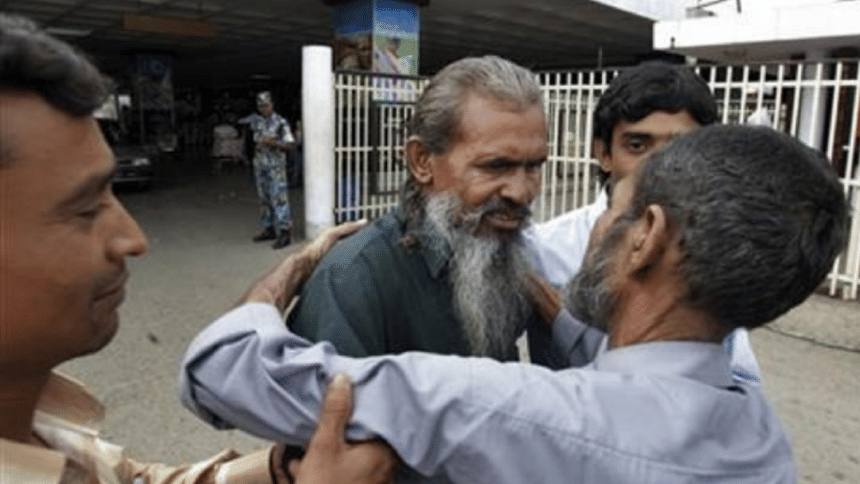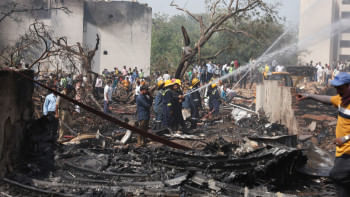Bangladeshi citizen found in Pakistan jail dies 4 years later

A man who returned to Bangladesh four years ago from a Pakistani prison, where he spent 15 years on suspicion of being an Indian spy, died Thursday, his family said. He was 56.
Moslemuddin Sarkar had been suffering from diabetes and kidney failure, and in recent days had trouble breathing. His brother, Julhas Uddin, said Sarkar's imprisonment and torture in Pakistan had left him "physically very weak."
"We are preparing for his burial," Uddin said, sobbing. "Please pray for my brother."
Sarkar vanished in 1989 from his village of Bishnurampur, about 110 kilometers (70 miles) north of Dhaka, and traveled for several years in India before being picked up in 1997 by Pakistani authorities near the border.
He spent 15 years in prison cells in Karachi and other locations in Pakistan. His family thought he was dead. But an anonymous caller from Pakistan told them he was in Pakistan, and the International Committee of the Red Cross helped secure his return in August 2012.
He arrived at the international airport in Dhaka that year — bearded, thin and ravaged by fatigue. Family members greeted and embraced him for the first time in 23 years. Sarkar said little while wiping away tears rolling down his cheeks.
His elder brother, Sekandar Ali, gripped him tightly and said "I can't believe you are alive! You are back!" before more gently suggesting, "Brother, let's go home. Mother is waiting for you."
When Sarkar first disappeared, Ali searched the shipyard where he had once worked, but found no evidence of his brother. He and the family waited for years to hear news from Sarkar, but eventually came to believe he had died.
Upon his return to Bangladesh, Sarkar told The Associated Press that he had first crossed into India in 1989, visiting New Delhi for a few months as well as the northeastern states of Assam and Meghalaya. He then returned to New Delhi, got married and moved into a slum. But when his Indian wife left him, he decided to travel to Pakistan to find work.
"Some people told me I will get a better work if I go to Pakistan. They told me you are a Muslim, go there, you will get better chance," he said in 2012. "But I got caught along the India-Pakistan border when I tried to enter Pakistan in 1997. I had no travel documents."
Sarkar said he was interrogated and tortured by Pakistani authorities who believed he was an Indian spy.
Pakistan and India have a history of bitter relations and often imprison each other's citizens for lengthy periods for entering their territories. Both sides have freed scores of such prisoners, but hundreds are still believed held in jails.
Sarkar was to be buried Thursday night near his home, his family said. He is survived by his two brothers.

 For all latest news, follow The Daily Star's Google News channel.
For all latest news, follow The Daily Star's Google News channel. 








Comments